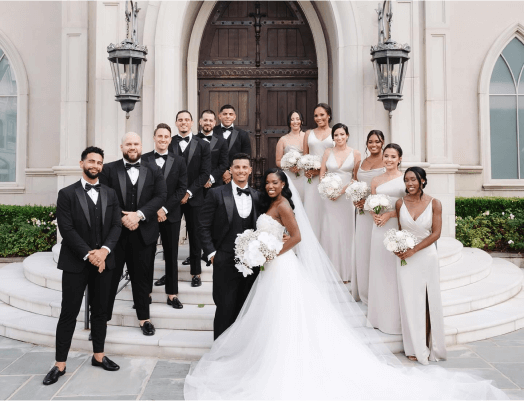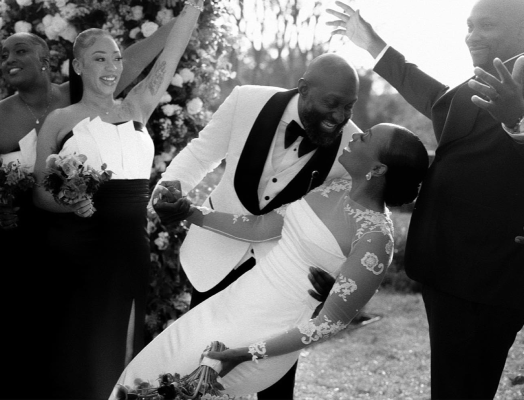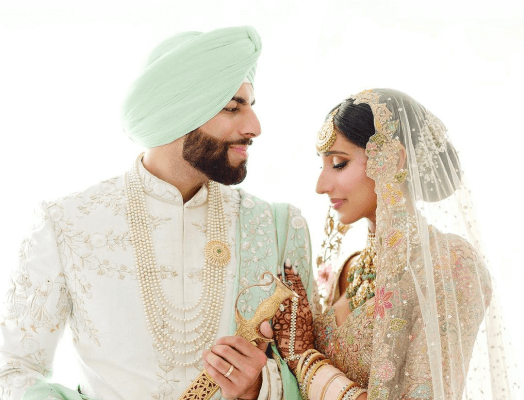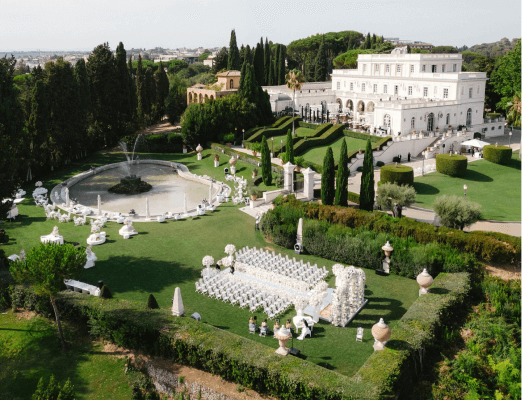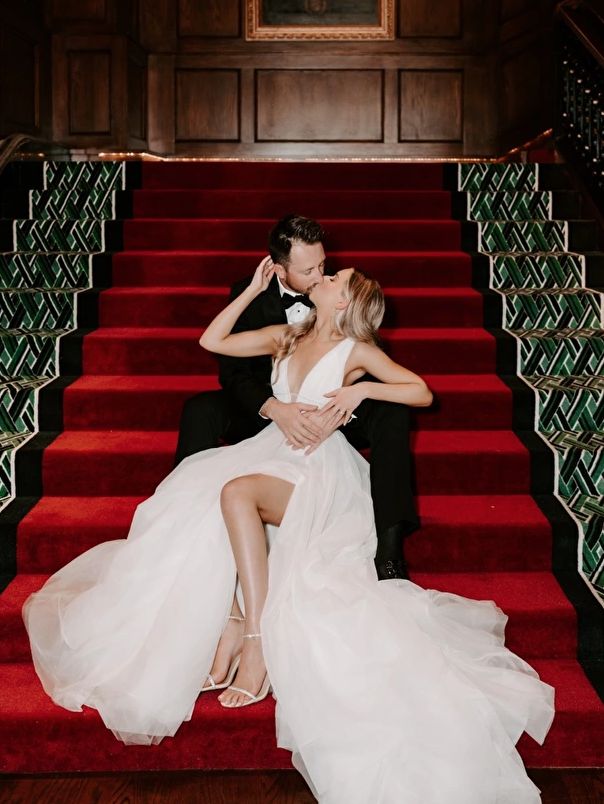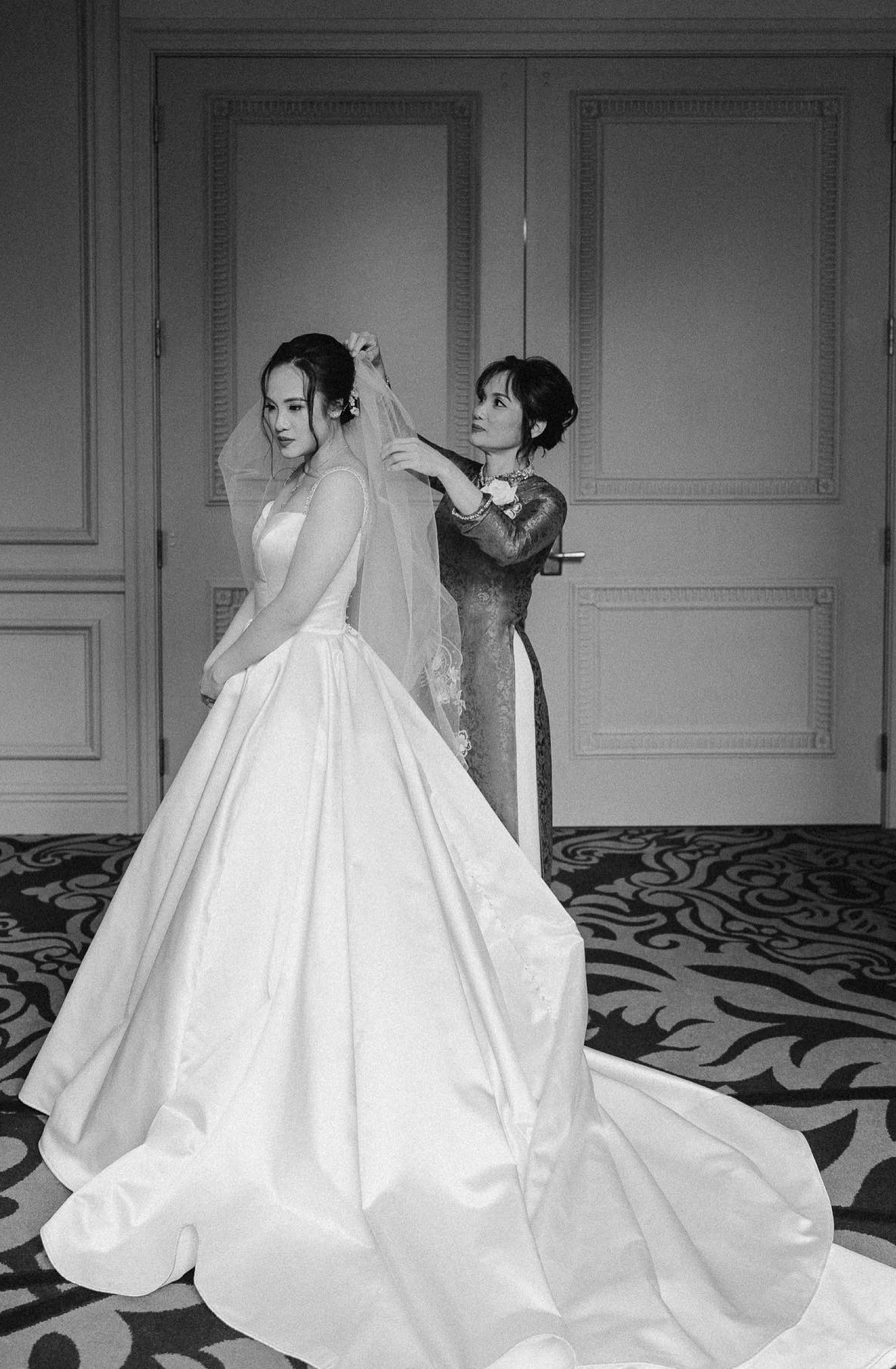Cultural Harmony: Bagpipes in Scottish Wedding Celebrations
- Author: Natali Grace Levine
- Reading time: 10 min 46 sec
- Publication date: 07/25/2024
- Updated: 08/15/2025
- Historical Overview
- Bagpipes and Scottish Traditions
- Connection to National Pride and Identity
- Bagpipes in Scottish Wedding Ceremonies
- The Role of Bagpipes in Scottish Heritage and Family Unity
- Common Bagpipe Pieces
- The Emotional Significance of Popular Scottish Wedding Melodies
- Planning for a Wedding with Bagpipes
- Modern Adaptations and Innovations
- Customizing the Bagpipe Performance to Fit the Couple's Preferences
Bagpipes have been an integral part of Scottish culture for centuries, with their origins stretching back to ancient civilizations. Initially introduced to Scotland through Roman and Celtic influences, bagpipes evolved into a quintessential symbol of Scottish identity. Historically, they were used in battle to rally troops and in ceremonial events to mark significant occasions. The sound of the bagpipes, with their unique and penetrating tones, became synonymous with Scottish pride and resilience. Over time, bagpipes became a staple in Scottish festivities, reflecting both historical and cultural heritage.
In Scottish weddings, bagpipes hold a special and revered place, adding a sense of tradition and grandeur to the celebration. They are often played to accompany the bride's entrance, creating a dramatic and emotional atmosphere that captivates guests. During the ceremony, the bagpipes might be used to punctuate key moments, such as the signing of the marriage register or the exchange of vows. Their presence not only enhances the romantic and celebratory mood but also serves as a tribute to Scottish heritage, connecting the couple and their guests to the rich tapestry of Scottish history. The inclusion of bagpipes in a wedding underscores the importance of tradition and culture, making the event a truly memorable and authentic experience.
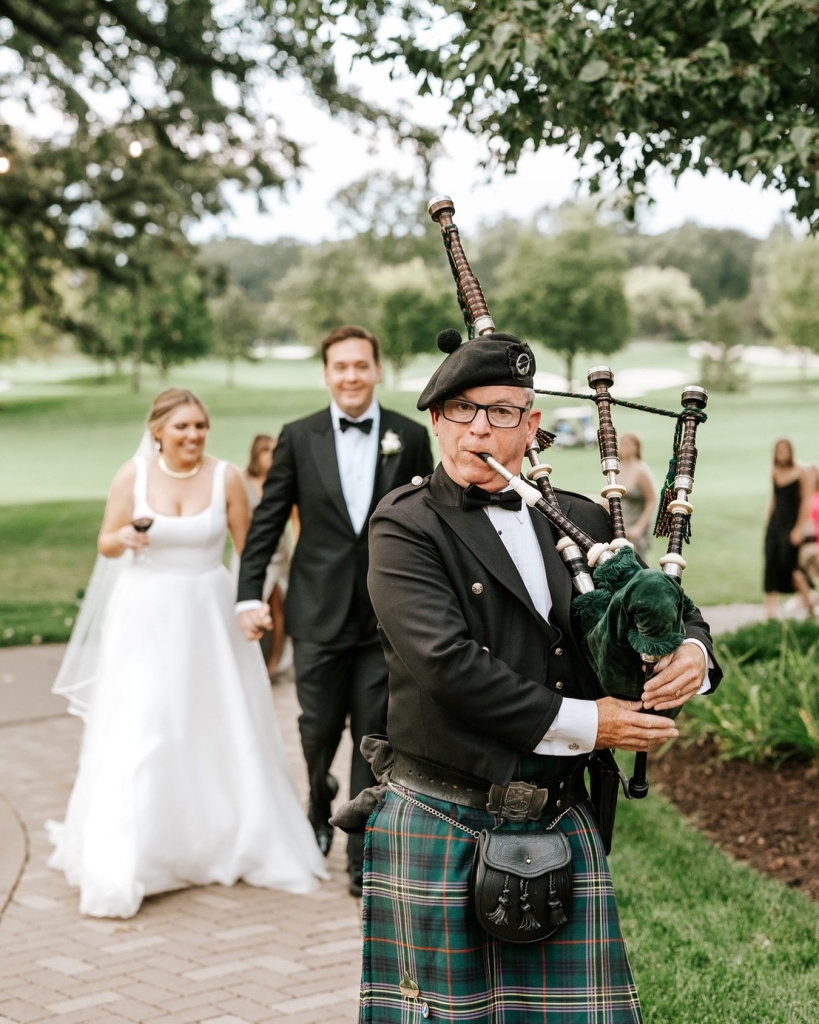
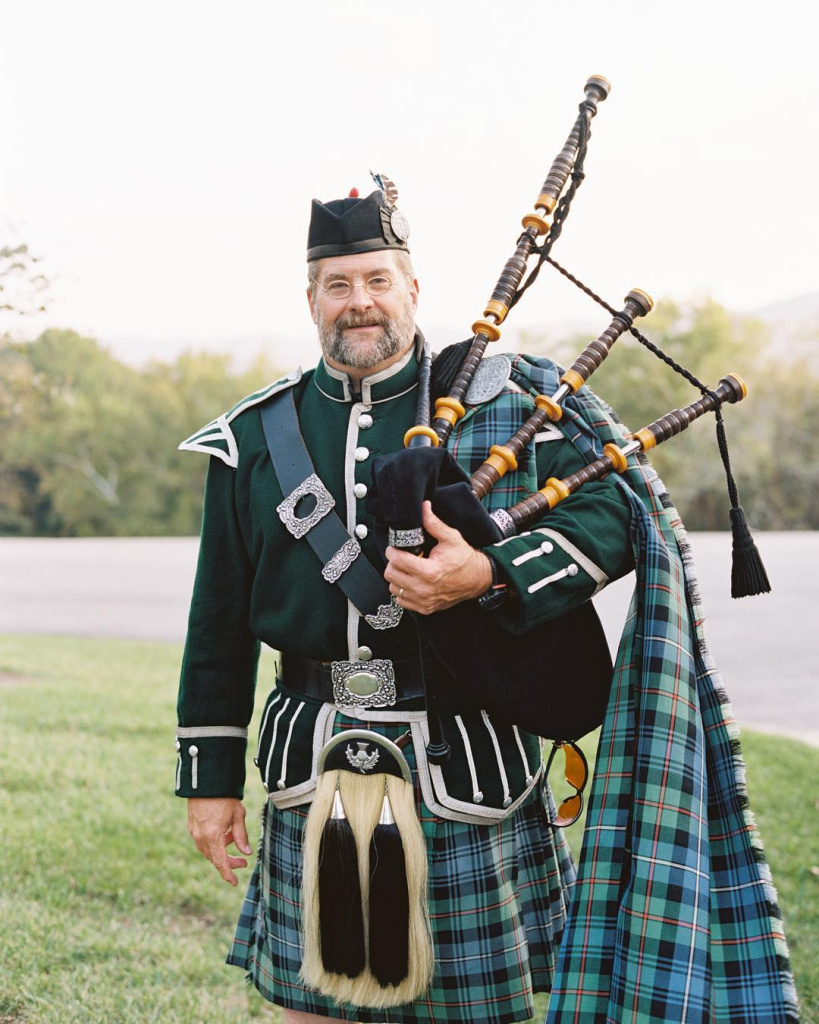
Find Your Perfect Wedding Vendors
Historical Overview
The bagpipes have a storied history in Scotland that dates back to ancient times. Evidence suggests that early forms of bagpipes were brought to Scotland by Roman soldiers and Celtic tribes. These early instruments were used in various ceremonial and military contexts, helping to shape the distinctive sound that bagpipes are known for today. By the Middle Ages, bagpipes had become an integral part of Scottish culture, commonly used in battles to boost morale and communicate across distances. Their popularity continued to grow during the Renaissance when they were featured in both royal courts and local festivities. Bagpipes were also associated with Highland culture, becoming a symbol of Scottish identity and pride. Over time, they became emblematic of Scottish tradition, their music playing a central role in both public ceremonies and private celebrations. The 19th and 20th centuries saw a resurgence in their popularity, as the bagpipes were embraced by Scots worldwide. Today, they remain a cherished symbol of Scottish heritage, representing a deep connection to the nation's past.
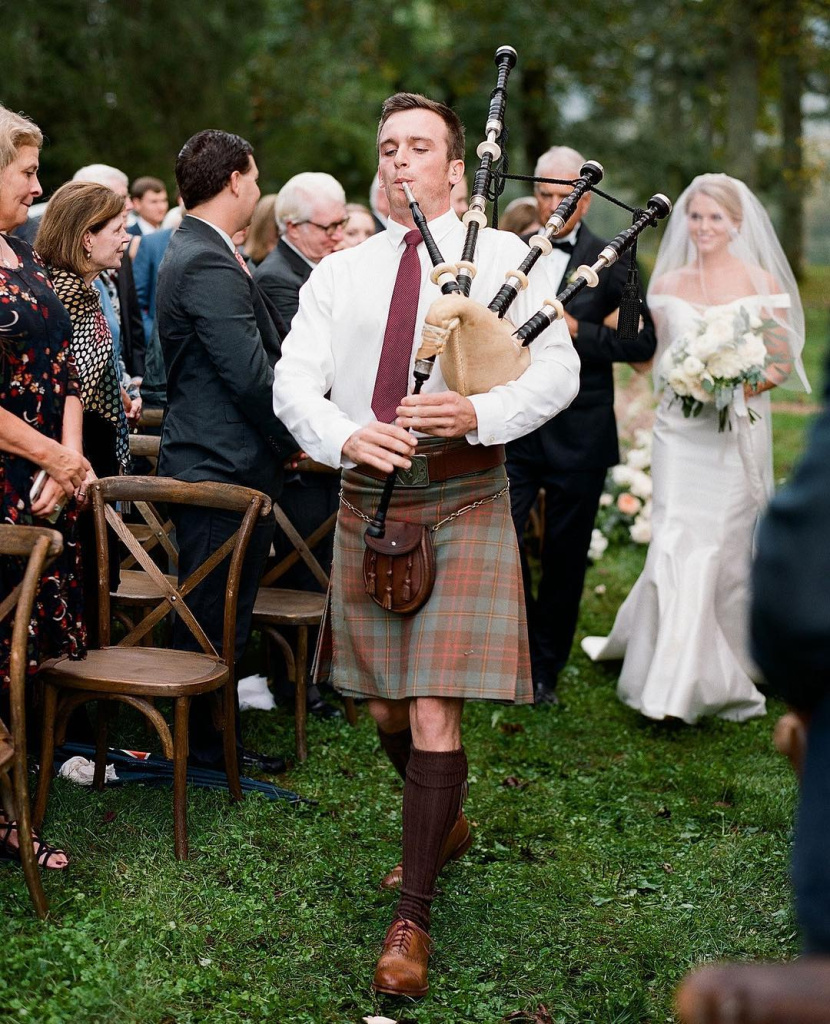
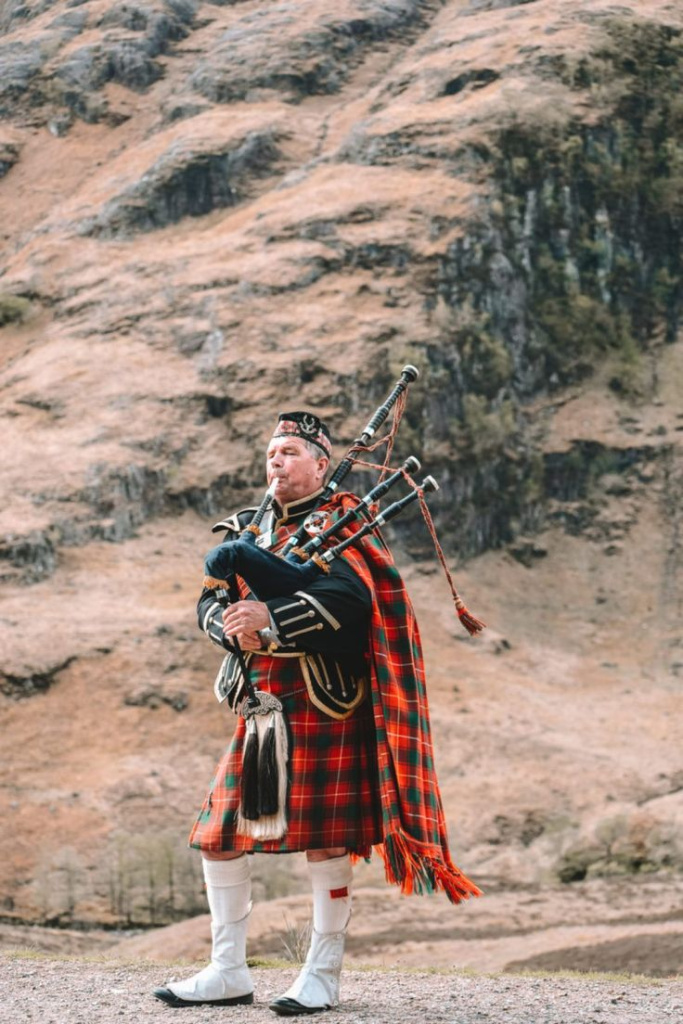
Evolution of Their Use in Ceremonies and Celebrations
The use of bagpipes in ceremonies and celebrations has evolved significantly over the centuries. Initially, bagpipes were primarily employed in military contexts, used to rally troops and boost morale during battles. As their popularity spread, they began to feature prominently in various public ceremonies, including royal events and state functions. By the medieval period, bagpipes had become a staple in Scottish festivities, including weddings, where their distinct sound added grandeur and emotional depth. In the 18th and 19th centuries, the bagpipes' role in ceremonial contexts was further solidified, with their music symbolizing Scottish heritage and national pride. During this time, they were increasingly associated with personal milestones, such as weddings, where they marked significant moments like the bride's entrance and the signing of the register. In the 20th century, bagpipes saw a resurgence in popularity as they became a symbol of Scottish cultural revival and identity. Today, their use in weddings continues to reflect a blend of tradition and modernity, celebrating both personal and cultural significance. The evolution of bagpipes in ceremonies illustrates their enduring appeal and their ability to adapt to changing contexts while retaining their symbolic power.
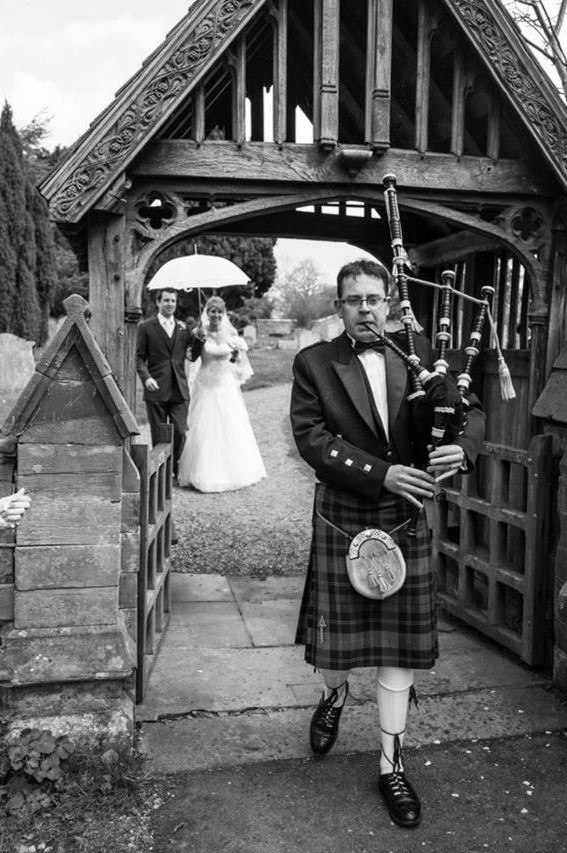
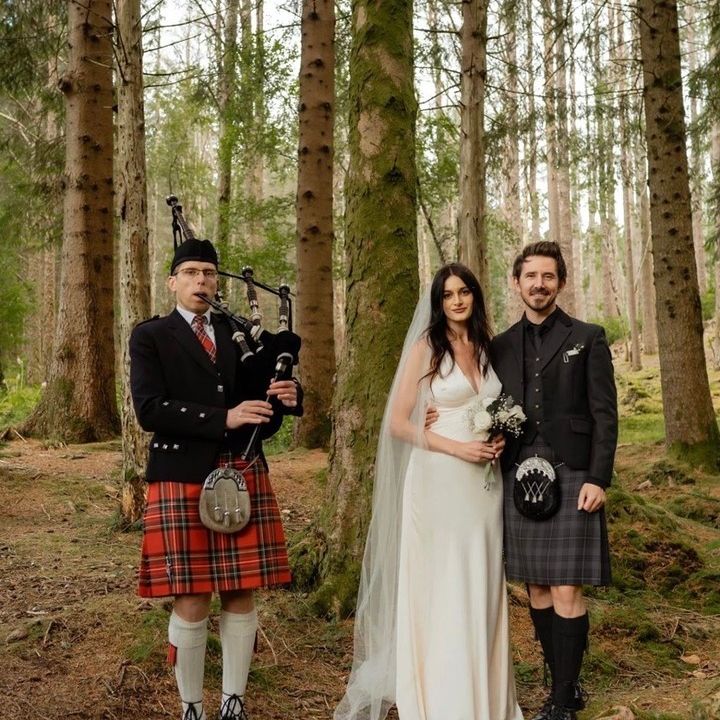
Bagpipes and Scottish Traditions
Bagpipes play a central role in Scottish heritage and traditions, serving as a powerful symbol of the nation's identity. Their distinctive sound is deeply embedded in Scotland's cultural fabric, evoking images of Highland landscapes and historical battles. Historically, bagpipes were used to communicate across distances during conflicts and to energize troops, embedding them in the martial and ceremonial aspects of Scottish life. Over time, they evolved into an emblem of Scottish pride and featured prominently in national celebrations and public ceremonies. Bagpipes are integral to various traditional events, including festivals, parades, and commemorations, where their music enhances the sense of occasion and cultural continuity. They also play a significant role in personal celebrations, such as weddings and funerals, marking life’s milestones with a touch of tradition. Their presence in these events underscores the deep connection Scots have to their history and heritage. The enduring popularity of bagpipes reflects their ability to bridge past and present, linking contemporary Scots with their historical roots. Their role in preserving and celebrating Scottish culture ensures that the bagpipes remain a cherished and iconic symbol of Scotland.
Connection to National Pride and Identity
Bagpipes are profoundly connected to Scottish national pride and identity, symbolizing the enduring spirit and cultural heritage of Scotland. Their evocative sound has long been associated with the Highlands and the historic struggles and triumphs of the Scottish people. As a traditional instrument, bagpipes evoke a strong sense of belonging and continuity, resonating deeply with Scots both at home and abroad. During periods of national celebration or remembrance, such as the annual Burns Night or Remembrance Day, bagpipes are played to honor Scotland’s history and its people. The music of the bagpipes serves as a reminder of Scotland’s rich cultural tapestry and its historical resilience. They are featured prominently in national festivals, public ceremonies, and official events, reinforcing their role as a symbol of Scottish identity. For many Scots, the sound of the bagpipes is a source of pride and a connection to their ancestral roots. Their use in ceremonial occasions, such as state events and personal milestones, further cements their importance in expressing national pride. Through their association with both historical and contemporary events, bagpipes continue to embody the essence of Scottish heritage and unity.
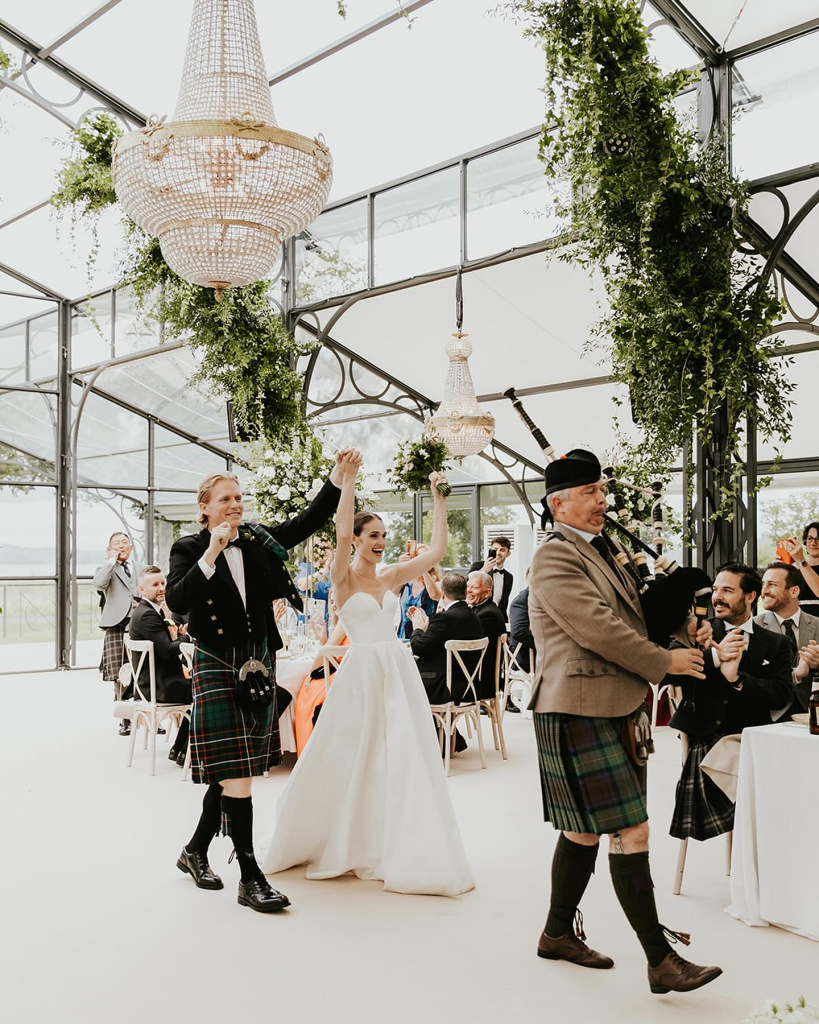
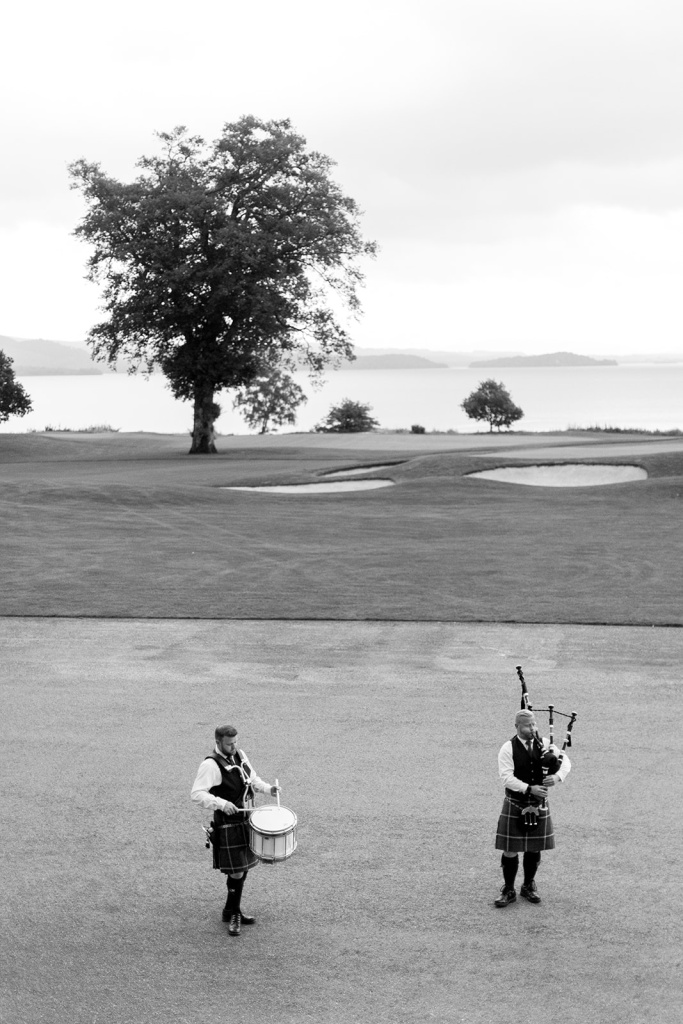
Bagpipes in Scottish Wedding Ceremonies
In wedding ceremonies, bagpipes carry a profound symbolic significance, enhancing the celebration with their rich cultural heritage. Their distinctive sound evokes a sense of tradition and grandeur, setting the tone for a memorable and meaningful event. Bagpipes are often used to mark key moments in the ceremony, such as the bride’s entrance and the recessional, imbuing these moments with an air of solemnity and celebration. The music of the bagpipes connects the couple to Scottish traditions and history, reflecting the couple’s cultural roots and familial heritage. The inclusion of bagpipes also signifies a deep respect for Scottish customs, honoring the legacy of past generations. Their presence in a wedding ceremony serves as a powerful tribute to the union being celebrated, blending personal joy with cultural pride. Bagpipes can also enhance the emotional impact of the event, their resonant tones creating a poignant and unforgettable atmosphere. As a symbol of Scottish identity, bagpipes add a unique and cherished element to the wedding, linking the couple’s special day with the broader tapestry of Scottish heritage. Their role in weddings underscores the importance of tradition and the celebration of cultural legacy.
The Role of Bagpipes in Scottish Heritage and Family Unity
Bagpipes represent Scottish heritage and familial bonds by embodying a deep connection to Scotland’s historical and cultural legacy. Their music is a living link to centuries of Scottish tradition, evoking the landscapes, stories, and struggles of past generations. In family gatherings and ceremonies, such as weddings and funerals, the sound of bagpipes serves as a powerful reminder of shared ancestry and communal identity. For many Scottish families, including bagpipes in significant events, reaffirms their cultural roots and honors the traditions passed down through the generations. The presence of bagpipes at these gatherings helps to strengthen familial bonds, creating a shared experience that celebrates both personal and collective heritage. Their role in these occasions highlights the importance of maintaining cultural practices and preserving family legacies. As a symbol of Scottish pride, bagpipes bring families together, connecting them to their history and to each other. Their music evokes a sense of unity and belonging, reinforcing the ties that bind family members to their Scottish heritage. Through their enduring presence in Scottish ceremonies, bagpipes continue to celebrate and sustain familial and cultural connections.
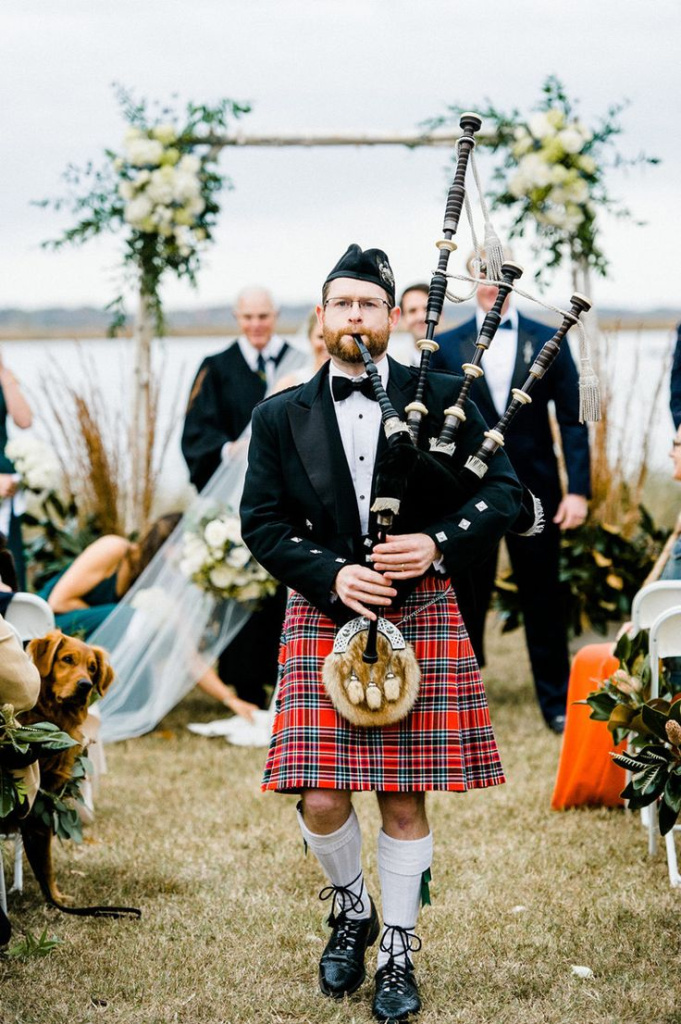
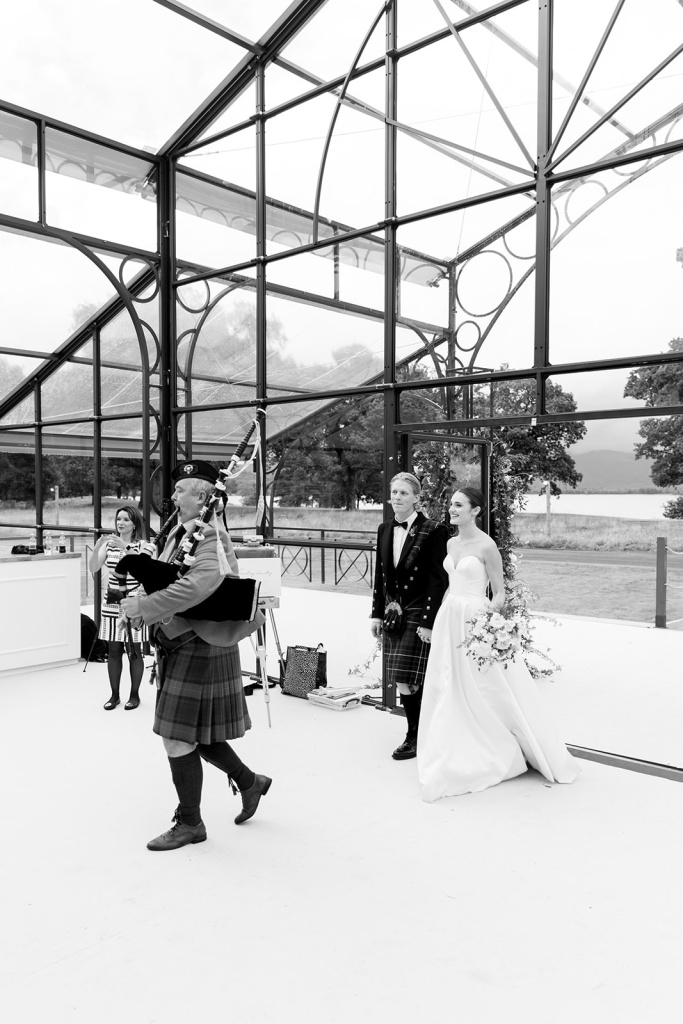
Common Bagpipe Pieces
At Scottish weddings, certain tunes are particularly popular for their ability to evoke tradition and enhance the ceremonial atmosphere. Classic melodies such as "Scotland the Brave" and "Flower of Scotland" are frequently played, celebrating Scotland's rich history and national pride. "The Skye Boat Song," with its evocative lyrics and haunting melody, adds a touch of romance and nostalgia. "Highland Cathedral," a relatively modern composition, is cherished for its majestic and uplifting tone, making it a favorite for key moments like the bride's entrance. Traditional dance tunes, like "The Scottish Wedding March" and "The Prince of Wales's March," are often included to accompany the wedding procession and the newlyweds' exit. Additionally, "Auld Lang Syne," a song synonymous with Scottish celebrations, is often performed to mark the conclusion of the festivities. Each of these tunes contributes to the rich tapestry of Scottish cultural expression, creating a memorable and authentic experience for the couple and their guests. The choice of music reflects the deep connection to Scottish traditions and enhances the sense of heritage throughout the wedding celebration.
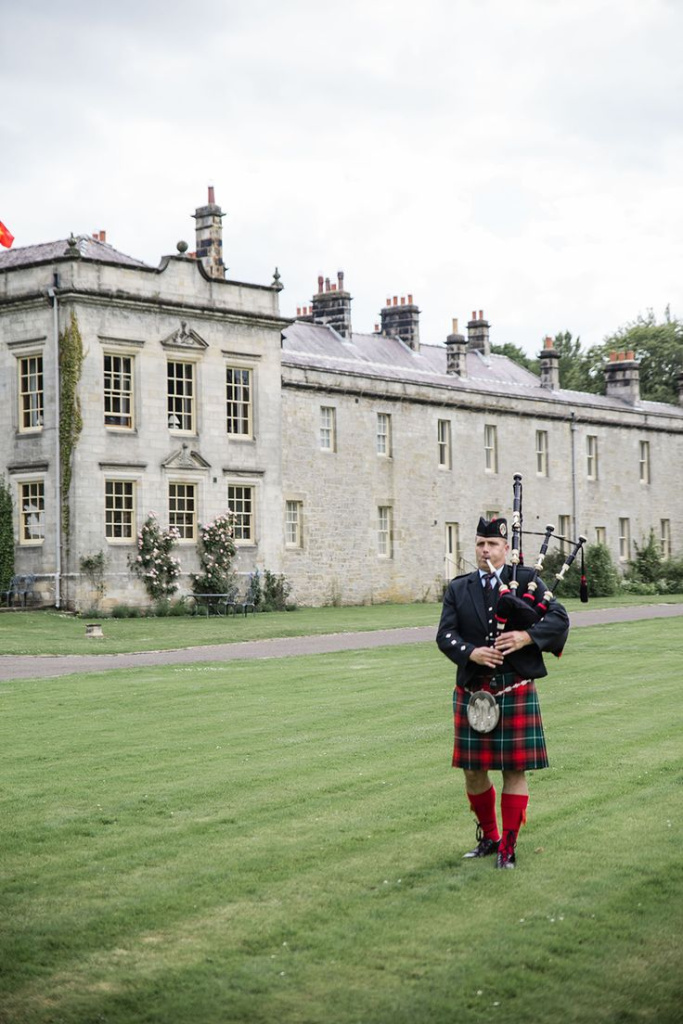
The Emotional Significance of Popular Scottish Wedding Melodies
The emotional impact of traditional Scottish wedding tunes is profound, creating a deeply resonant experience for all involved. Melodies like "Scotland the Brave" evoke a powerful sense of national pride and nostalgia, stirring feelings of connection to Scotland’s rich heritage. The haunting strains of "The Skye Boat Song" often elicit a sense of romance and wistfulness, transporting listeners to a place of emotional reflection. "Highland Cathedral" delivers a majestic and uplifting experience, imbuing the ceremony with a sense of grandeur and reverence. The rhythmic and celebratory nature of "The Scottish Wedding March" adds an air of joyous anticipation as the bride and groom make their entrance. "Auld Lang Syne," with its nostalgic and reflective lyrics, fosters a communal sense of unity and farewell, bringing everyone together in a shared emotional moment. Each tune resonates with personal and cultural significance, enhancing the emotional depth of the wedding. The music helps to create memorable experiences, weaving together personal sentiment with the rich tapestry of Scottish tradition. As the melodies fill the air, they amplify the celebration's joy, pride, and sense of belonging.
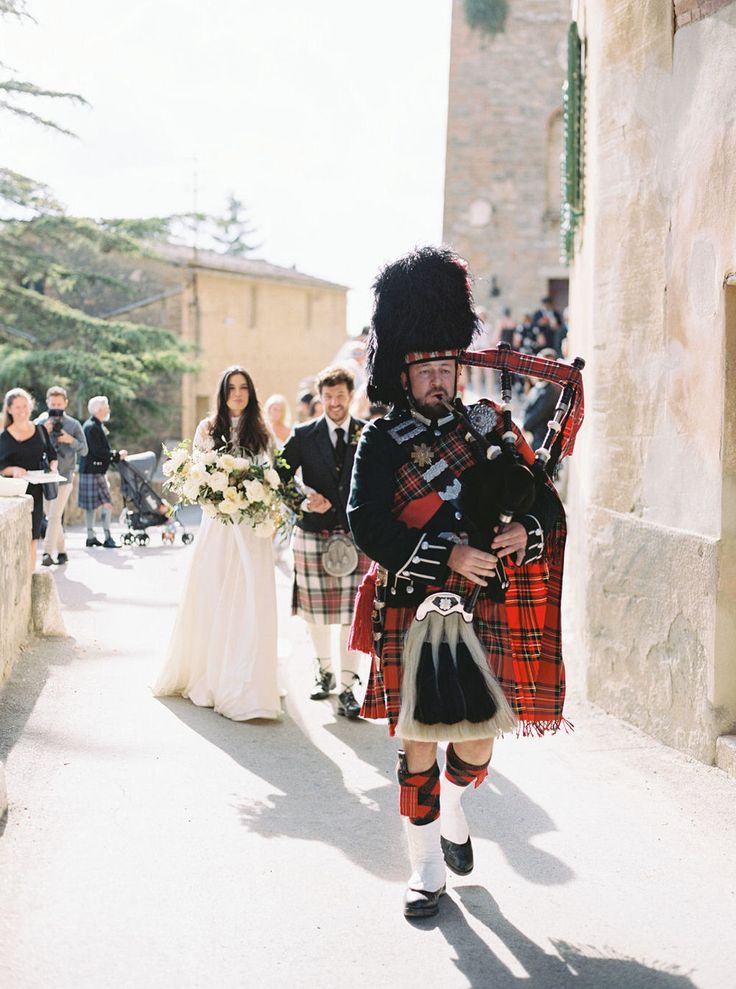
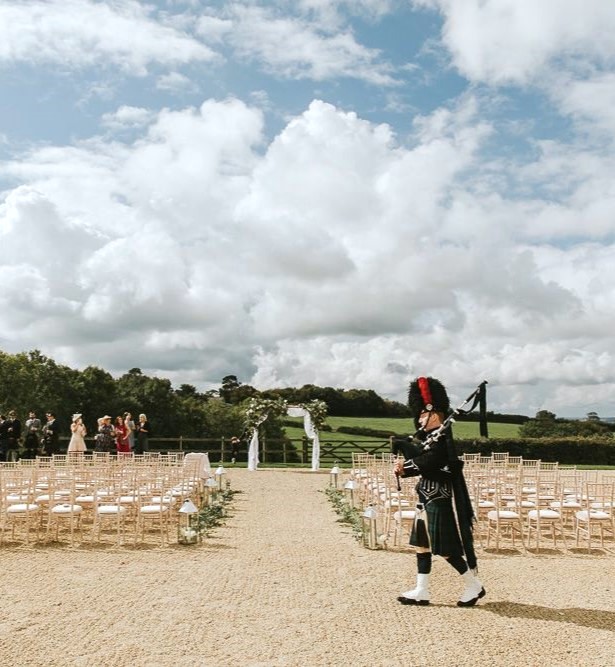
Planning for a Wedding with Bagpipes
Planning for a wedding with bagpipes involves careful consideration and coordination to ensure that this iconic element enhances the celebration. Bagpipes bring a unique and evocative sound to the ceremony, adding a touch of Scottish heritage and grandeur. From selecting the right piper to integrating the music seamlessly into various parts of the ceremony, every detail contributes to creating a memorable experience. By thoughtfully addressing the choice of piper, the timing and placement of the music, and logistical considerations such as space and acoustics, you can ensure that the bagpipes will elevate the emotional impact of your wedding and honor your cultural traditions in a meaningful way.
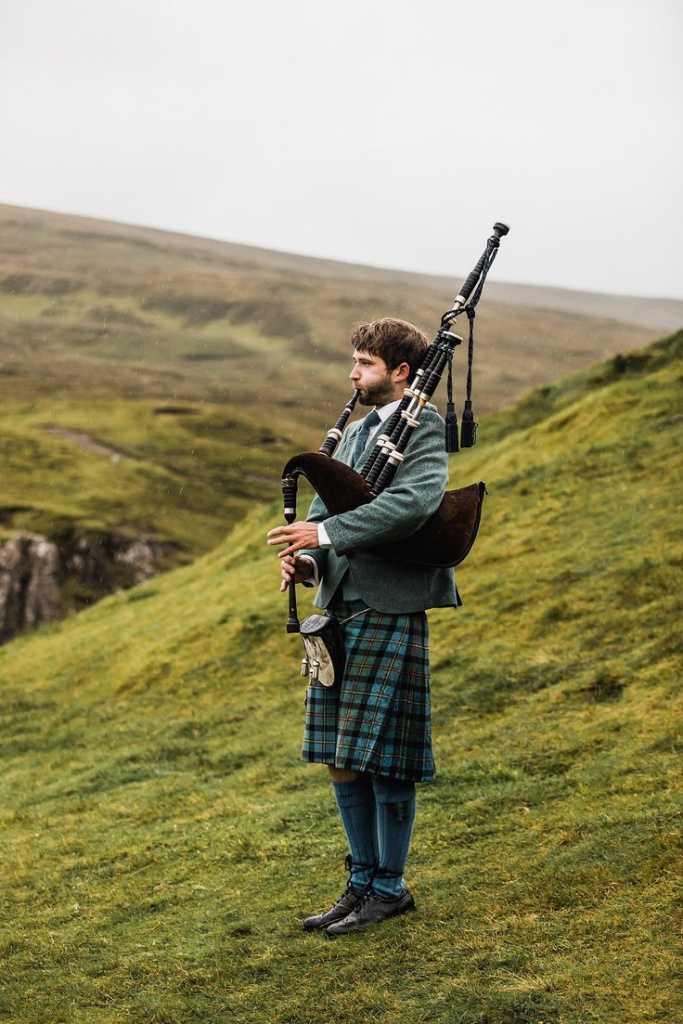
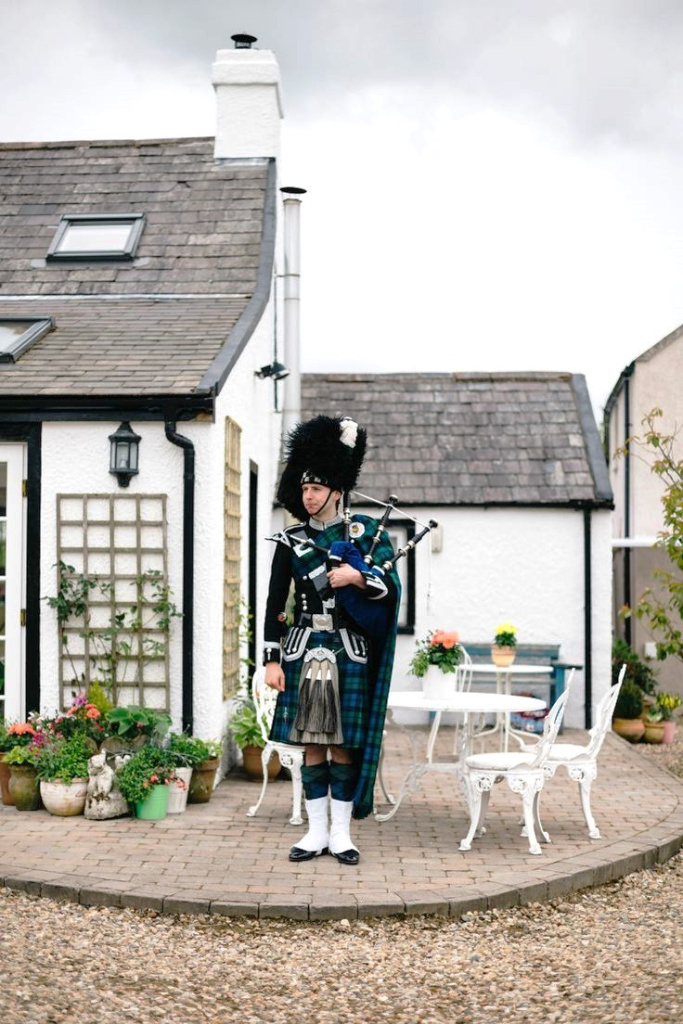
Choosing a Piper
When selecting a professional bagpiper for your wedding, consider several key factors to ensure a successful and memorable experience. First, evaluate the piper's experience and reputation; an experienced piper will be skilled in handling various aspects of the performance and can offer valuable advice on integrating bagpipes into your ceremony. Additionally, review their repertoire to ensure they can perform the specific tunes and styles you desire, whether classic wedding marches or traditional Scottish melodies. Availability is crucial; book your piper well in advance to secure their services for your chosen date. It’s also beneficial to check references or attend a live performance if possible to gauge their skill and suitability.
Incorporating Bagpipes into the Ceremony
The timing and placement of the bagpipes are essential for a seamless integration into your wedding ceremony. Typically, bagpipes are featured during key moments such as the bride’s entrance, the recessional, and special moments like the signing of the register. The piper can also play as guests arrive or during cocktail hour to set a festive tone. To effectively incorporate bagpipes, coordinate with your wedding planner and other musicians to ensure smooth transitions between different parts of the ceremony.
Logistical Considerations
Proper planning is crucial for the successful integration of bagpipes into your wedding. Ensure there is adequate space for the piper to perform comfortably, and consider the acoustics of the venue to ensure the sound carries well. Coordinate with other musicians or elements of the ceremony to avoid conflicts and to achieve a harmonious blend of sounds. Discussing these logistics with your piper in advance can help address any potential issues and ensure that the bagpipes enhance rather than disrupt your celebration.
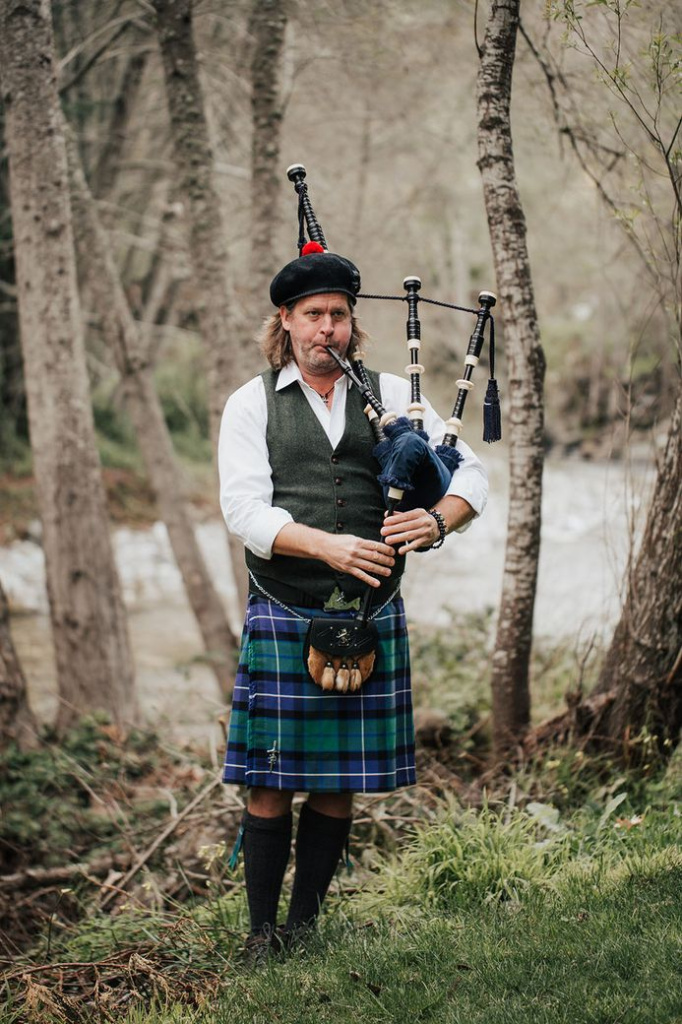
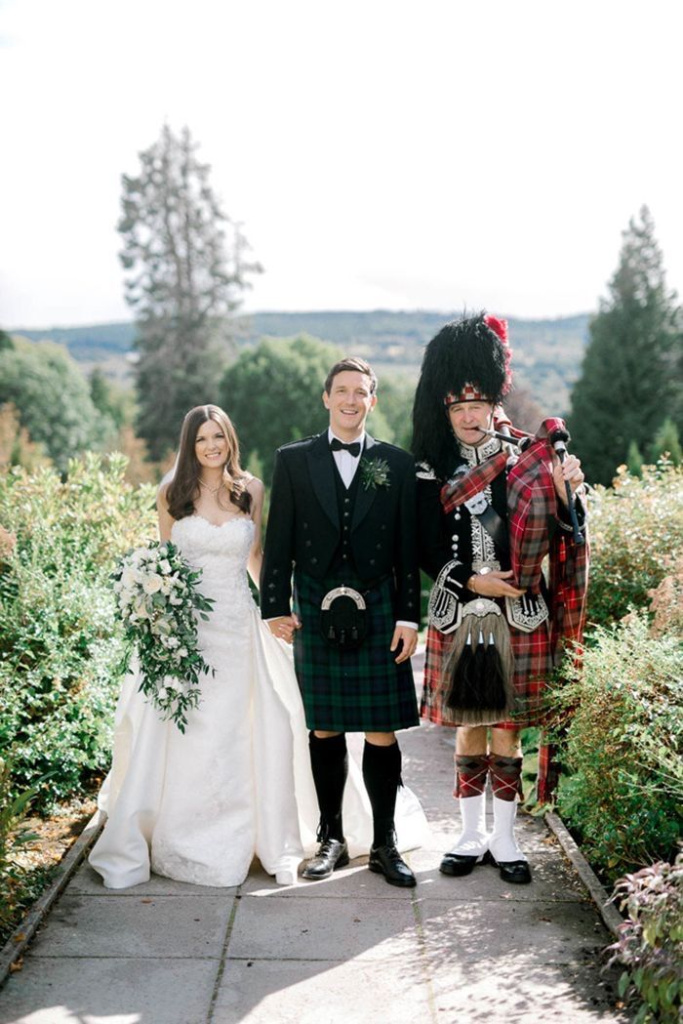
Modern Adaptations and Innovations
Modern weddings are embracing bagpipes in innovative and creative ways, blending traditional Scottish elements with contemporary styles to create unique and memorable experiences. One exciting trend is the fusion of bagpipes with other musical genres, such as incorporating them into modern pop, classical, or even electronic music. For example, bagpipers may collaborate with DJs or live bands to perform popular songs with a traditional twist, adding a distinctive sound to contemporary hits. This fusion creates a dynamic and eclectic atmosphere, appealing to diverse tastes and making the wedding celebration stand out.
Another creative approach is integrating bagpipes into themed weddings or destination celebrations. For instance, a Scottish-themed wedding might feature bagpipes performing traditional tunes alongside Celtic folk music, while a destination wedding in a different country might include bagpipes in a unique blend of local music styles. Additionally, bagpipes can be combined with classical ensembles for a sophisticated touch, or with jazz bands to add a novel and unexpected element.
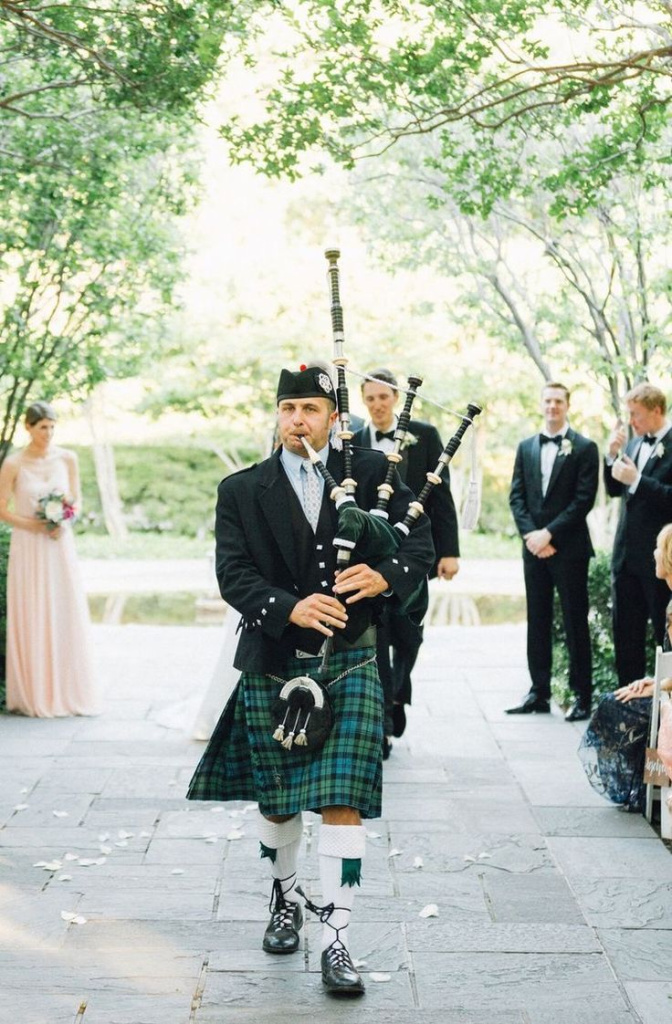
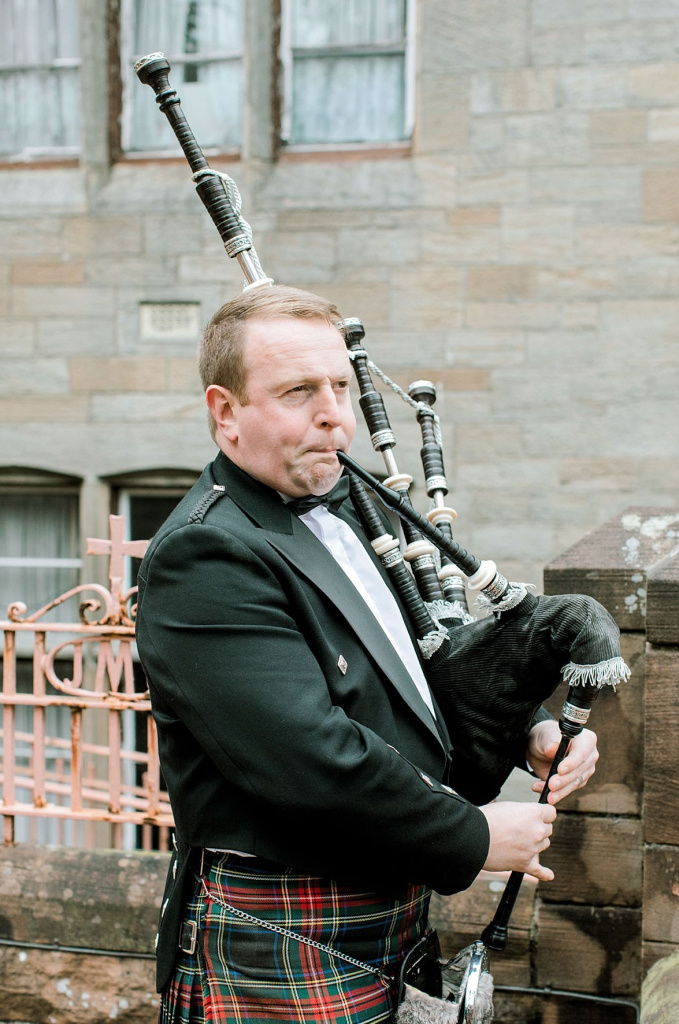
Modern couples are also exploring new ways to use bagpipes during the ceremony, such as incorporating them into unconventional moments like outdoor ceremonies or creative processions. For example, a piper might lead a wedding procession through a scenic outdoor venue, or perform during a dramatic entrance or exit, enhancing the visual and emotional impact of these moments. By blending traditional bagpipe music with contemporary elements and creative presentation, modern weddings are redefining how this historic instrument can enhance the celebration.
Customizing the Bagpipe Performance to Fit the Couple's Preferences
Customizing the bagpipe performance to fit the couple's preferences involves selecting and tailoring the music to reflect their tastes and the overall theme of the wedding. This can start with choosing specific tunes that hold special meaning for the couple, such as a song that represents their love story or a piece that has personal significance. For example, if the couple has a favorite song or a memorable moment from their relationship, the piper can arrange a version of that tune to be played during the ceremony.
Incorporating unique or personal tunes into the performance adds a distinctive touch that makes the wedding even more special. This might involve creating a custom arrangement of a beloved song or a piece of music that reflects the couple's heritage or interests. Collaborating with the piper to develop a playlist that includes both traditional Scottish tunes and the couple’s favorite melodies can create a memorable and personalized experience.
Additionally, couples might choose to include modern or eclectic music styles, blending traditional bagpipe sounds with contemporary genres to match their wedding theme. This approach can make the performance feel fresh and relevant while still honoring Scottish traditions. By working closely with the piper and discussing their preferences, couples can ensure that the bagpipe performance is a meaningful and personalized element of their wedding celebration.
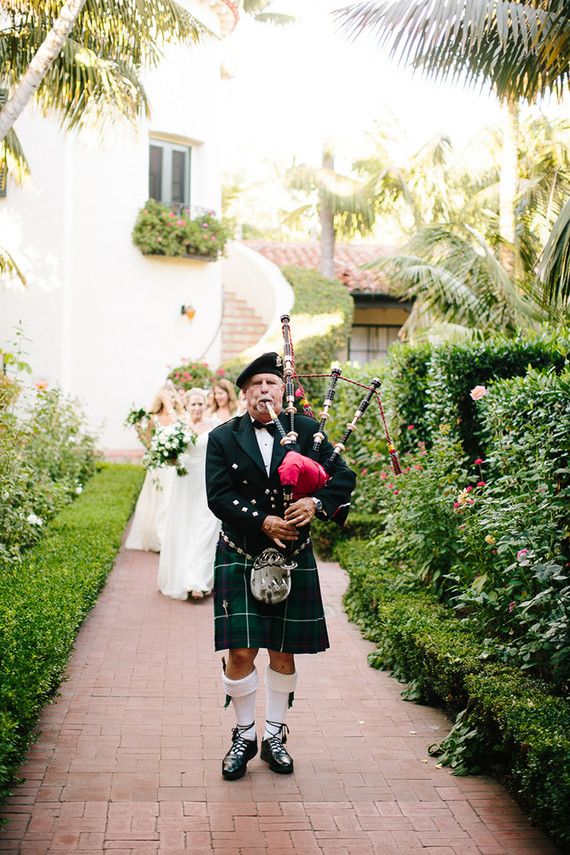
The iconic sound of bagpipes in Scottish wedding ceremonies encapsulates the essence of Scotland's rich cultural heritage, creating an unforgettable and emotionally charged experience. As a symbol of national pride and tradition, bagpipes add a unique and profound layer to the celebration, blending historical resonance with personal significance. Their music, whether performed during the bride's entrance, the recessional, or special moments throughout the ceremony, elevates the event with a sense of grandeur and nostalgia. By incorporating bagpipes, couples honor their Scottish roots while infusing their wedding with a timeless and meaningful touch. The presence of bagpipes not only enhances the ceremonial atmosphere but also serves as a powerful reminder of the enduring connections between past and present, celebrating love and tradition in a harmoniously unforgettable way.







